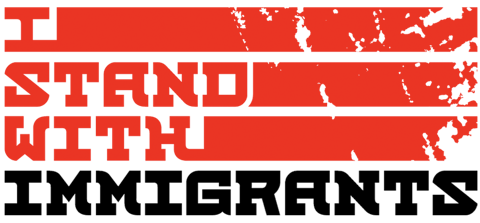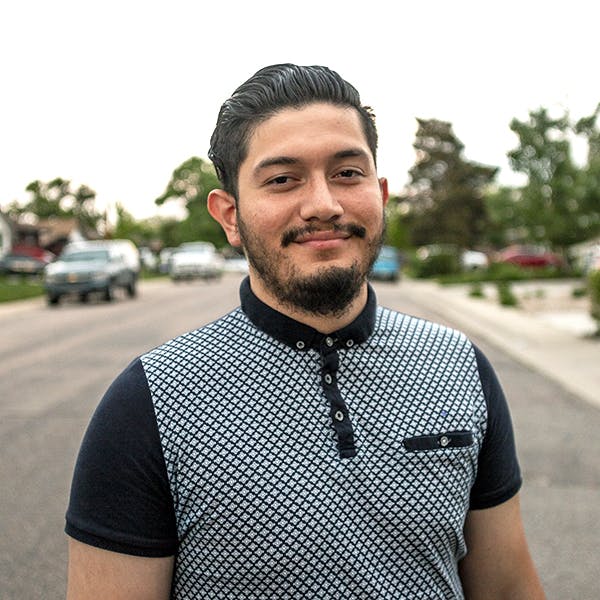Hugo Calvo
Meet Hugo Calvo, a DACA recipient, brother, son and immigrant from El Salvador. He came to the U.S. when he was 10 years old, joining his parents and brother, who were already living in Colorado. While working part-time, Hugo earned his bachelor’s degree and started his career at a technology company. He currently lives with his family near Denver, Colorado.
Hugo recalls the challenges of starting school in the United States, and how the implementation of DACA changed his future. “I knew a little bit of English, but not fluently. When I was thrown into the gauntlet of my elementary school, it was quite the experience. I struggled for maybe a year or two. Fast-forward to 2012, and a lot of things took a different turn with the DACA program. I became a DACA recipient, and a lot of doors opened. I started working legally. My idea was just to focus on saving up to pay for my own school. I was going to a local university here; that project took me about six years. It was a six-year endeavor of going to school, working part-time and paying that off. I just graduated [this past] December. It was a lot of hard work, a lot of energy and devotion behind that whole push, and [it was amazing] to finally see it all come to fruition. Now I work as an accountant at a technology company here in Denver.”
DACA was a gift for Hugo, and a path to continue his education, but it arrived at a difficult time for him and his family. “My junior year of high school, my dad passed away. A lot of responsibilities came my way, and things took a different turn. I decided to pause school [when my dad passed away] and that summer DACA came into existence. Before then, I was paying out-of-state tuition, and my mom was making sacrifices and a half to pay that tuition. Thankfully, my dad had life insurance, and that helped with satisfying some of the tuition. I had decided to stop going to school because my mom just couldn’t do it anymore, but once DACA came along, my objective was to get back into the full motion of working, and going back to school. DACA gave me that extra push that I needed, in order to help meet those expectations at home.”
Hugo’s father had decided to move the family to the U.S. because of safety concerns, and the lack of economic opportunities in El Salvador. The rest of the family is protected by TPS, or Temporary Protected Status, a temporary designation benefitting immigrants from countries that have been destabilized by armed conflict, violence, or environmental disasters. “From what I remember, my dad had seen a decline in his income. His company wasn’t doing well in El Salvador. He was a salesman and those opportunities were slowly decreasing for him. He’d been in the U.S. before, fleeing persecution from the civil war in El Salvador in the 1980’s. He was involved with some leftist school group, and the military started watching and following him home. My grandpa got scared and thought, ‘he needs to get out of here’. And then my dad decided to come over to Denver, we had family out here. Everything kind of fell into place after that. TPS was something my family wasn’t even anticipating, but it has changed their lives.”
Hugo is proud of his story, and his family’s immigrant heritage. “When I was undocumented, it [added] stress. But now, it’s created opportunities. Because of the DACA blessing, for me, being an immigrant in the United States is a wonderful story. I’m part of that quintessential American story. This is a nation of immigrants, and I just happen to be a late 20th century immigrant, as opposed to the early 1900s. You try to find beauty in the struggle, because it’s been a deep and robust struggle. But I wouldn’t have it any other way. I live in the greatest country, and I try to be a productive member of my community. Having the immigrant tag is more of a pride thing, now.”
#CELEBRATE IMMIGRANTS
We all know someone with an immigration experience or have an immigrant heritage story of our own. Join us to stay updated as we #CelebrateImmigrants across the country!


